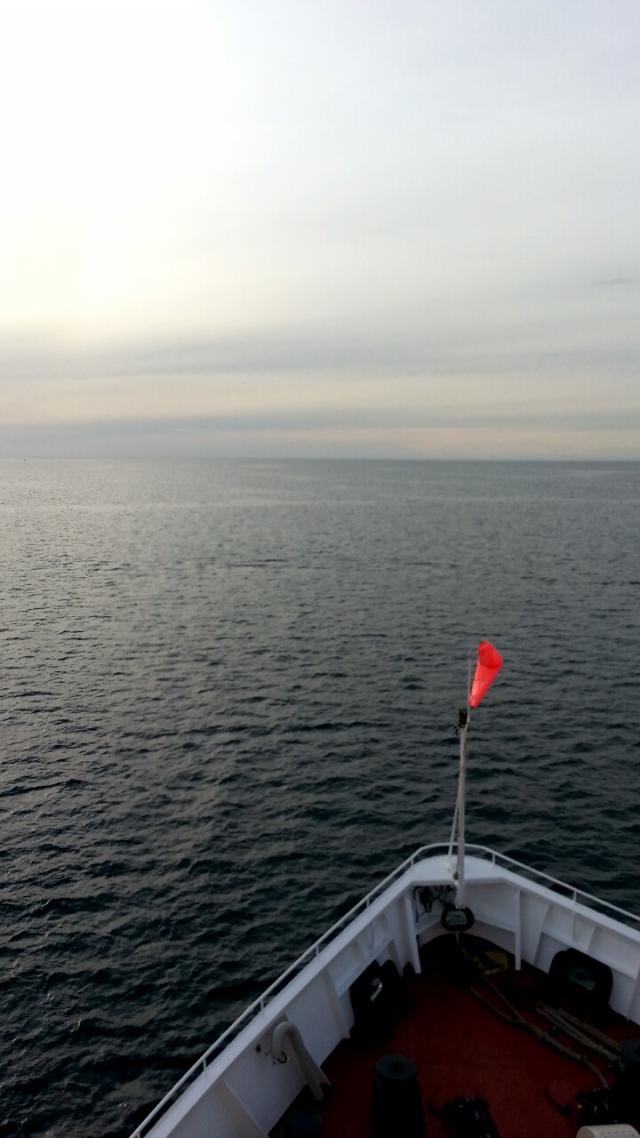Bold study to break into ocean's ancient past
 Australian scientists will use some of the most advanced techniques available to turn back the climatic clock and peer 5 million years into the ocean’s past.
Australian scientists will use some of the most advanced techniques available to turn back the climatic clock and peer 5 million years into the ocean’s past.
A group of leading international scientists are preparing to set sail on a two-month ocean expedition up the coast of Western Australia to drill deep into the seabed, on a mission to gain valuable insight into our climate future.
They are seeking to answer big questions like; ‘Has Australia’s climate always been so dry?’, ‘Have the tropical reefs around Australia always been there?’, and ‘What will happen to Australia’s climate and reefs in the future?’
The $20 million International Ocean Discovery Program (IODP) Indonesian Throughflow Expedition 356, launched in Freemantle this week, is the first ever expedition to examine the climatic conditions of the past five million years off the western coast of Australia.
Currently, similar records of Australia’s climate history cover just half a million years, but this expedition wants to extend that knowledge tenfold.
The team of 125 international scientists and crew aboard the high-tech JOIDES Resolution research vessel - one of the world’s largest science ships - will drill down one kilometre beneath the seabed to find prehistoric clues.
“Knowledge of past global climate and oceanic systems is important if we are to understand how our present environment came to be and how it might change in future,” University of Melbourne palaeoceanographer Associate Professor Stephen Gallagher.
“Our Southern Hemisphere location is vitally important in solving global science problems such a determining the history of the Indonesian Throughflow current, which is a key part of the global oceanic circulation system.
“The history of Australia’s climate is strongly linked to oceanic conditions off its coastline. Looking into the past history of these reef ecosystems and ocean currents will improve our understanding of how modern reefs and currents off west Australia may behave with future climate change.”
Dr Gallagher said the layers beneath the seabed contain rock and shells that give vital information about changing ancient environmental conditions, much like tree rings tell a story about the climate of a forest.
“We hope to find out when the present tropical oceanic conditions first appeared off western Australia so we can tell when the reefs developed. This may help us to predict how coral reefs and their tropical inhabitants will respond to possible future climate change,” he said.
“We really don’t know how long the present climate of the western half of Australia has persisted and how it has changed through various greenhouse and icehouse periods.
“We hope to understand Australian monsoonal behaviour during the last period in Earth's history, when CO2 levels were similar to today.”
Professor Neville Exon heads up the Australian office of the Australia and New Zealand IODP Consortium (ANZIC). He said these expeditions are vitally important to understand our planet.
“Oceans comprise 70 per cent of the Earth’s surface. The International Ocean Discovery Program’s studies of the sediments and rocks in the world’s oceans tackle the ‘big science’ questions like climate change, plate tectonics and geological hazards,” Prof Exon said.
“We will be really excited to see the results from the Indonesian Throughflow Expedition. We hope that we can answer some of the big questions about Australia’s climate past and future and will certainly find a few surprises along the way.”
The expedition departed from the Fremantle dock on Monday, and will make its way up the West Australian coast to land in Darwin on October 1.
Ongoing details of the journey will be posted on its official blog page.







 Print
Print